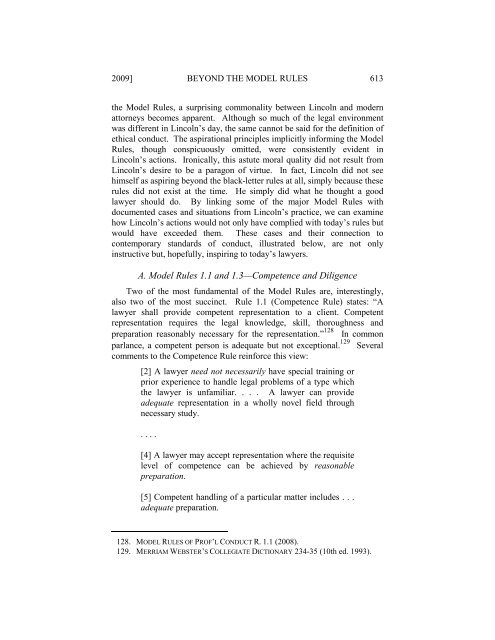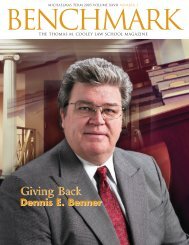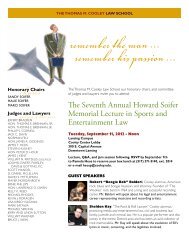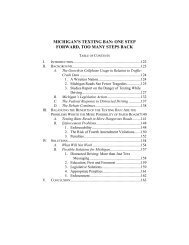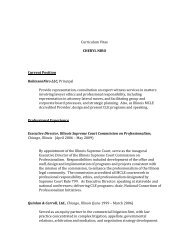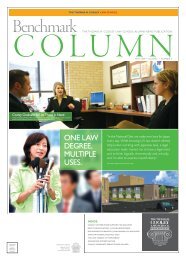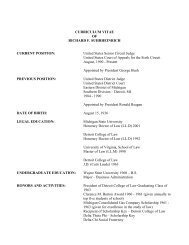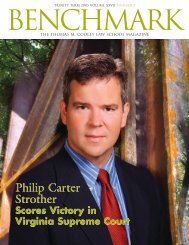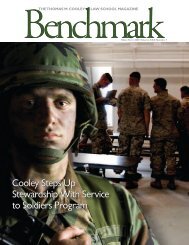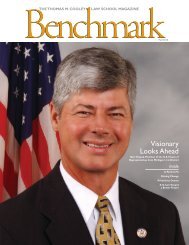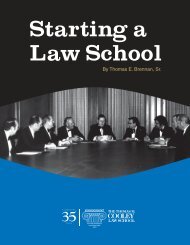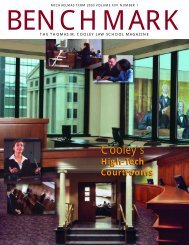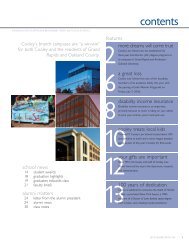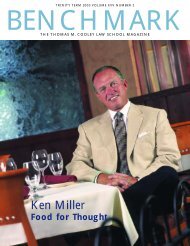Beyond The Model Rules - Thomas M. Cooley Law School
Beyond The Model Rules - Thomas M. Cooley Law School
Beyond The Model Rules - Thomas M. Cooley Law School
You also want an ePaper? Increase the reach of your titles
YUMPU automatically turns print PDFs into web optimized ePapers that Google loves.
2009] BEYOND THE MODEL RULES 613the <strong>Model</strong> <strong>Rules</strong>, a surprising commonality between Lincoln and modernattorneys becomes apparent. Although so much of the legal environmentwas different in Lincoln’s day, the same cannot be said for the definition ofethical conduct. <strong>The</strong> aspirational principles implicitly informing the <strong>Model</strong><strong>Rules</strong>, though conspicuously omitted, were consistently evident inLincoln’s actions. Ironically, this astute moral quality did not result fromLincoln’s desire to be a paragon of virtue. In fact, Lincoln did not seehimself as aspiring beyond the black-letter rules at all, simply because theserules did not exist at the time. He simply did what he thought a goodlawyer should do. By linking some of the major <strong>Model</strong> <strong>Rules</strong> withdocumented cases and situations from Lincoln’s practice, we can examinehow Lincoln’s actions would not only have complied with today’s rules butwould have exceeded them. <strong>The</strong>se cases and their connection tocontemporary standards of conduct, illustrated below, are not onlyinstructive but, hopefully, inspiring to today’s lawyers.A. <strong>Model</strong> <strong>Rules</strong> 1.1 and 1.3—Competence and DiligenceTwo of the most fundamental of the <strong>Model</strong> <strong>Rules</strong> are, interestingly,also two of the most succinct. Rule 1.1 (Competence Rule) states: “Alawyer shall provide competent representation to a client. Competentrepresentation requires the legal knowledge, skill, thoroughness andpreparation reasonably necessary for the representation.” 128 In commonparlance, a competent person is adequate but not exceptional. 129 Severalcomments to the Competence Rule reinforce this view:[2] A lawyer need not necessarily have special training orprior experience to handle legal problems of a type whichthe lawyer is unfamiliar. . . . A lawyer can provideadequate representation in a wholly novel field throughnecessary study.. . . .[4] A lawyer may accept representation where the requisitelevel of competence can be achieved by reasonablepreparation.[5] Competent handling of a particular matter includes . . .adequate preparation.128. MODEL RULES OF PROF’L CONDUCT R. 1.1 (2008).129. MERRIAM WEBSTER’S COLLEGIATE DICTIONARY 234-35 (10th ed. 1993).


